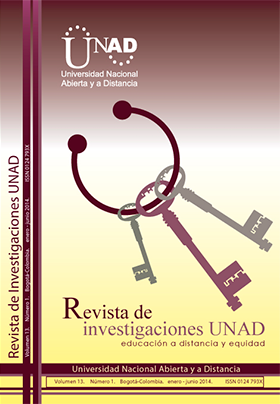Cuando la REVISTA DE INVESTIGACIONES UNAD recibe la postulación de un original por parte de su autor, ya sea a través de correo electrónico o postal, considera que puede publicarse en formatos físicos y/o electrónicos y facilitar su inclusión en bases de datos, hemerotecas y demás sistemas y procesos de indexación. REVISTA DE INVESTIGACIONES UNAD autoriza la reproducción y citación del material de la revista, siempre y cuando se indique de manera explícita el nombre de la revista, los autores, el título del artículo, volumen, número y páginas. Las ideas y conceptos expresados en los artículos son responsabilidad de los autores y en ningún caso reflejan las políticas institucionales de la UNAD
Grounded theory and its implications for educational research: the case of Atlas.ti
and researchers who study according to a qualitative approach
aimed at analyzing information, are forced to use strategies and
software for qualitative data analysis, however, the indiscriminate
use technological support at times makes the researcher's ability to discern and highlight the theoretical component. Therefore, it seeks to explain through a descriptive approach to the importance of a theoretical foundation to guide technology support, as they exemplify constant comparison methods, open or axial, of great importance in grounded theory, the importance of which reveals the action of the researcher to know the methodological and epistemological references supporting software in action research to develop. In that vein, highlight the theoretical action and, in the case of grounded theory, the interpretive, explanatory documents and conducted by researchers to consolidate data in a rigorous, is synonymous with research that draws on the resources technology to make way for a diligent work on the characterization and relationship analysis and emerging categories.




